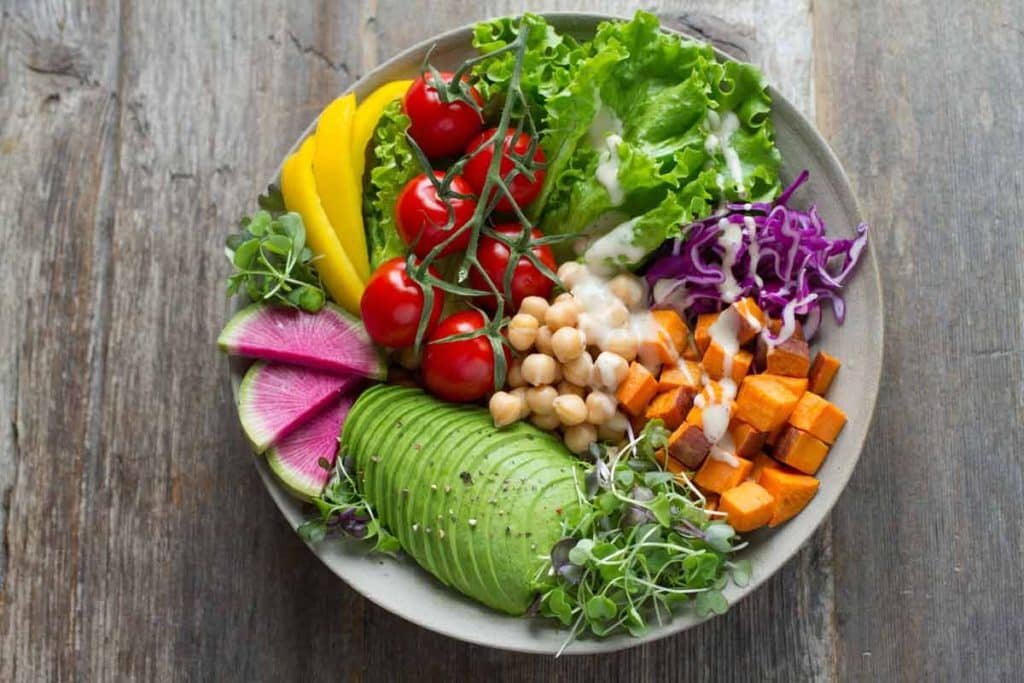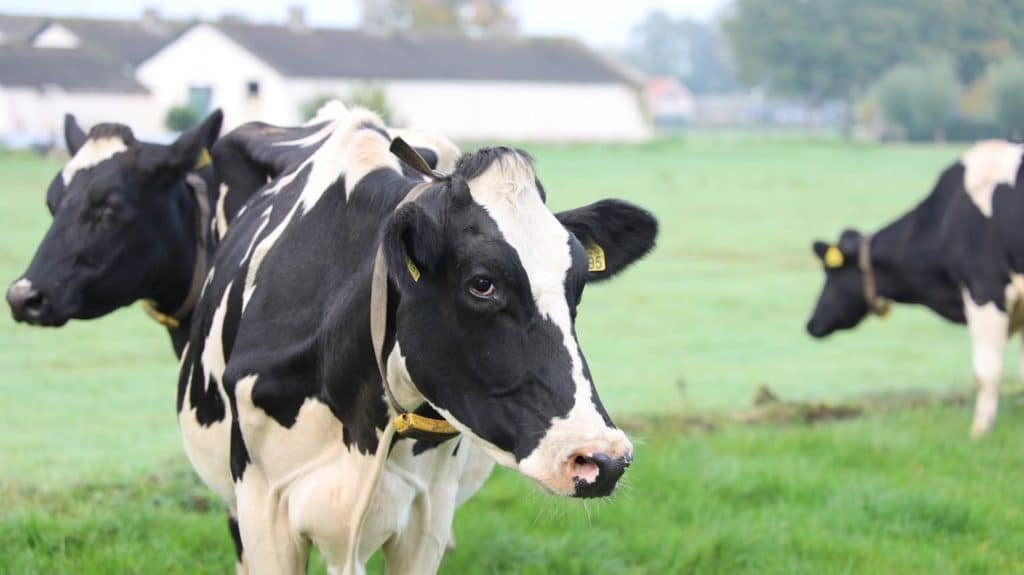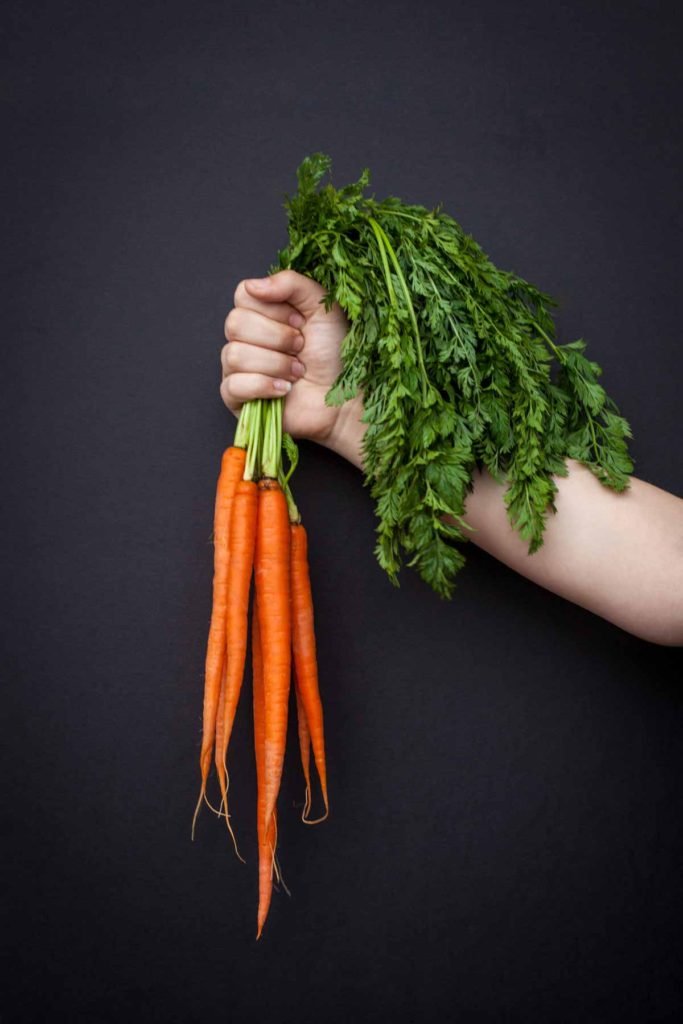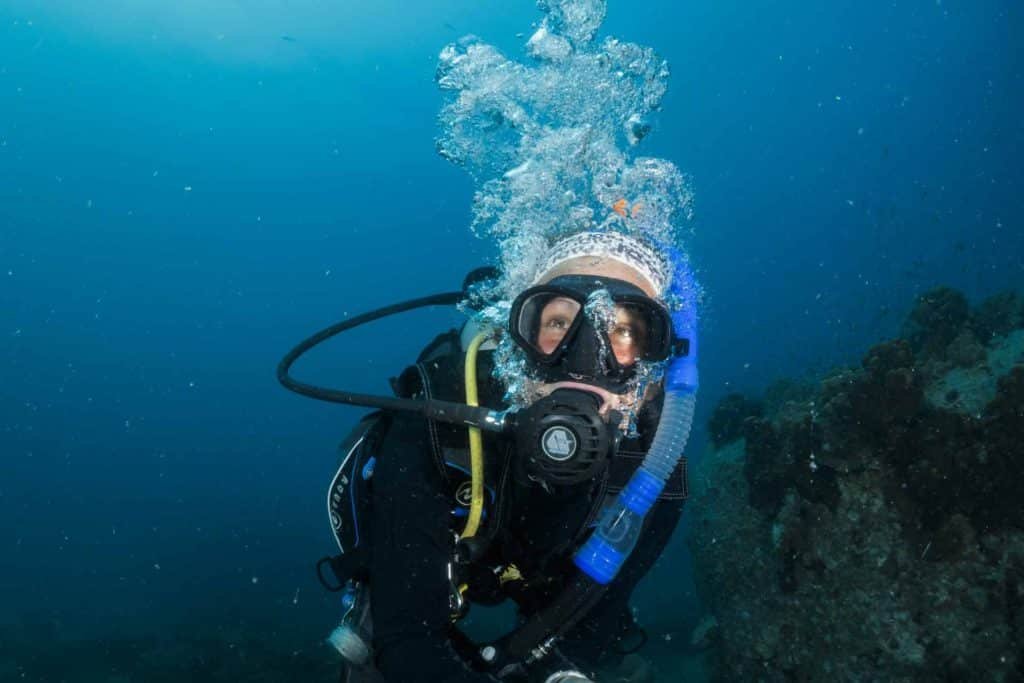This is the latest guest post by our Instructor Kiri. She has been blogging for us about various topics from travel advice for female solo travellers to everyday tips and tricks like how to take care of your hair when you go diving. This time Kiri writes about New Year’s resolution and her attempt to become a vegetarian – at least for 31 days…
Trying (and failing) to become a vegetarian
In the beginning of January I set myself a challenge to try and eat only vegetarian food for 31 days. Well, technically it was more of a pescetarian diet because I didn’t take fish and seafood off the menu. I’ve always been fairly conscious about eating ethically farmed foods, including meat, but I came to the realization I should be trying to do more. I did manage to find some amazing vegetarian food on Koh Tao that I never would have tried before: Shalimar does some amazing veggie curries with lentils (the dahl makhani is the best!), Coconut Monkey have some super tasty mushroom meatballs, and it’s so easy to make home cooked Thai curries vegetarian. I will continue to eat a lot of these after the 31 days. There were lots of foods I hated too – tofu is just not for me, thanks!

We don’t know if that is what Kiri had for lunch, but it looks delicious!
Although there are many health benefits to this kind of diet, this is not why I decided to try to eat (more) vegetarian. I don’t think I’m unhealthy and I certainly don’t care about weight loss (I also don’t know anyone here with scales so who knows if I did or not). But eating less meat can have massive positive effects on our climate.
How does meat production affect the world?
As a diver, obviously I’m concerned most about the effects of climate change on the ocean and it can be affected in a few different ways.
Methane from cows, deforestation and fertilizers used for all livestock creates as much greenhouse gasses as all the world’s cars, lorries and planes combined. The negative impact that methane has on the environment is 23 times higher than that of CO2. Excess nutrients from animal waste can also cause dead zones in the word oceans, by causing algal blooms that use the oxygen so then very little else is able to survive (this is not the only culprit, but it is one of the worst). This isn’t the only way it impacts our oceans.

Many coral reefs around the world are suffering from bleaching because of a rise in ocean temperatures. Shrinkage and death of corals also affects the thousands of species that live on the reef. Our oceans have seen a 25% increase in acidity and studies have shown that calcium carbonate slowly dissolves and break downs if water becomes too acidic. Calcium carbonate is used by corals to form their skeletons that in turn provide homes for reef organisms. Acidification also appears to reduce the amount of sulfur being released into the atmosphere, which in turn reduces the reflection of solar radiation back into space, resulting in more warming.
What can we do to help?
There is no easy fix for climate change, but reducing our consumption of meat is one way anyone can help – and it doesn’t matter whether you manage to be strictly vegan or adopt a flexitarian approach. There isn’t really a wrong way to do it; you can cut meat out for one meal, one day or even one week.
Cutting down our consumption of beef will have the highest impact; the energy used to create one quarter pound beef burger could power your phone for 6 months! I don’t eat a lot of beef anyway because it’s quite expensive here and I’m not a fantastic cook. But for those of you who do enjoy their steak, it is good start to go beef-free for just one or two days a week. If you skipped a serving of beef one day a week for a year it saves the equivalent to driving 384 miles in emissions. According to some research if everyone went meat free for just one single day the US alone would save 100 billion gallons of water.

There are many great websites that provide information on why we should consume less meat as well as provide recipes such as the Meatless Monday Movement. This is a great way to start reducing our meat consumption. Estimations show that if there was a global shift towards a more flexitarian diet it could cut greenhouse gas emissions by 56%.
How did I do?
Now the eagerly anticipated results, did I manage to go meat free for 30 days? Nope!
I’ll be honest, I didn’t manage to make it for the whole 30 days. In the middle of January I did enjoy some meat based food: I made myself a bacon sandwich for breakfast, simply because it was in the house (no, I did not buy it!) and I’m not a fan of wasting food. The same day I went to a friend’s barbecue and I didn’t want to be the awkward person bringing a lunch box or asking them to provide different food. I never read the back of any packets, crisps, chocolate or any other sweets, it never occurred to me that they might not be vegetarian friendly. You can say I’m making excuses and I probably am…

But going into this experiment, I was never in the mindset that I would from now on consume a completely vegetarian diet, this wasn’t really point of it all for me! Switching straight to a vegetarian or vegan diet can be a daunting task. Even though I know a few people who have achieved this and made superb efforts, this approach doesn’t work for everyone for many different reasons, be it lifestyle or work! In my personal opinion, rather than just having a small portion of the world’s population following a strictly plant based diet, we need a larger portion of the population to do it imperfectly, and just cut back on their meat consumption, be it to one meal a day or one meal a week whatever they can make work.
Going forward I’m still going to try and have a mostly pescatarian/flexitarian diet, maybe I will still eat the odd bit of meat here and there but I’m definitely more conscious of what I consume. The aim was to see for myself how easy it was to implement this kind of diet with my lifestyle, and I wanted to hopefully show other people how easy it is to consume less meat!
I was a massively fussier eater (seriously I have been compared to a 5 year old…) and I still managed and got to try lots of new food I otherwise never would of even thought of eating, and it was surprisingly easy.
Image credits: Dan Lee, private, unsplash.


Well done Kiri! Going vegetarian is a lot easier back in the UK. There are so many alternatives and products are labelled better for the consumer too. You did well to cut back on your meat and try to find alternatives here on our tiny little tropical island!